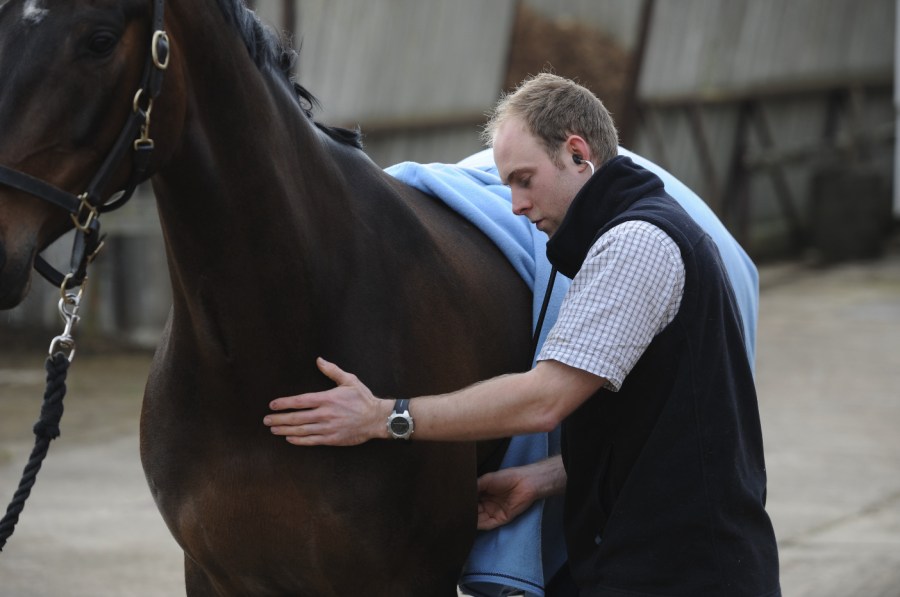Calls for greater transparency within the veterinary sector have been met with mixed responses from the equestrian world, with vets warning that “quality care could not be reduced to a simple price comparison”.
Last month, the Competition and Markets Authority’s (CMA) identified a lack of transparency around the costs of vet care and practice ownership.
The CMA proposals included providing better information on prices and treatments, a price cap on written prescriptions and a new comprehensive price comparison website, as well as making vets reveal if they are part of a large group.
However, equine veterinary practices and industry experts have warned that such principles could be challenging to implement in horse health.
Hambleton Equine Clinic, based near Stokesley, has welcomed the CMA’s calls for greater transparency, but warned that equine care could be simplified into standard price lists.
“We understand that costs matter to our clients, and we’ve always taken pride in being open and clear about pricing,” said Director and vet Alison Walters MRCVS. “We provide written estimates, discuss options before treatment, and encourage honest conversations about what’s best for each horse.
“The CMA’s report rightly highlights the need for trust, but that trust has always been at the heart of independent practice.”
Responsible care
Fellow Hambleton director Phil Cramp MRCVS added that while greater clarity is welcome, it is vital that the public recognises the true cost and complexity of equine medicine.
“The equipment we use, such as advanced imaging, diagnostics and surgical facilities, requires significant investment and expertise,” he said. “Quality care can’t be reduced to a simple price comparison. Our responsibility is to provide the right care, not just the cheapest option.”
British Equine Veterinary Association (BEVA) Chief Executive David Mountford said there was a risk that new regulatory or business requirements designed for companion animal practice could be applied uncritically to equine work.
“BEVA will be engaging closely to ensure any future changes are proportionate, workable, and reflect the needs and realities of equine veterinary care,” he said.
A changing landscape
The CMA’s investigation found that corporate-owned practices charge on average 16.6% more than independent clinics, something Hambleton’s directors believe reflects wider changes in the profession.
“The rise of large corporate groups has changed the landscape of veterinary care across the UK,” said Ms Walters. “Independent practices like ours remain focused on relationships, continuity and integrity rather than shareholder returns.”
Like many reputable vets, Hambleton provides clear pricing for routine procedures, detailed estimates for more complex cases and discussions about payment options to help owners manage costs responsibly.
“We welcome any move that helps horse owners make informed choices,” added Mr Cramp. “But reforms should build understanding, not confusion.
“Horses deserve care led by expertise and welfare, not by algorithms or price tags.”
Be prepared
While the future vet care a horse will require and its associated costs remain somewhat unpredictable, there are ways equestrians can help themselves feel more secure.
Gemma Stanford, Director of Horse Care and Welfare at British Horse Society (BHS), said it was important to think realistically about the costs of ownership before purchasing a horse.
“Frustratingly, we know that it’s often impossible to predict when a large vet bill is on its way, which can bring challenges,” she said. “However, to ease as many concerns as possible around costs, we’d encourage all horse owners to budget as effectively as they can. Try to take into consideration regular routine care such as vaccinations and vet call outs.
“It’d also be beneficial to think about horse insurance. Although it may seem like another cost, it can be a cost-effective solution in the long run. Make sure to take some time to think about this process so that you’re signing up to the right policy for you and your horse.”
The BHS Horse Care and Welfare Helpline service offers advice and support for anyone who cares for a horse, including those struggling financially.
“We know that none of us want to be parted from our horses, yet we also know it can be incredibly difficult to manage rising costs; that’s why we urge you to reach out to us,” Ms Stanford added.







